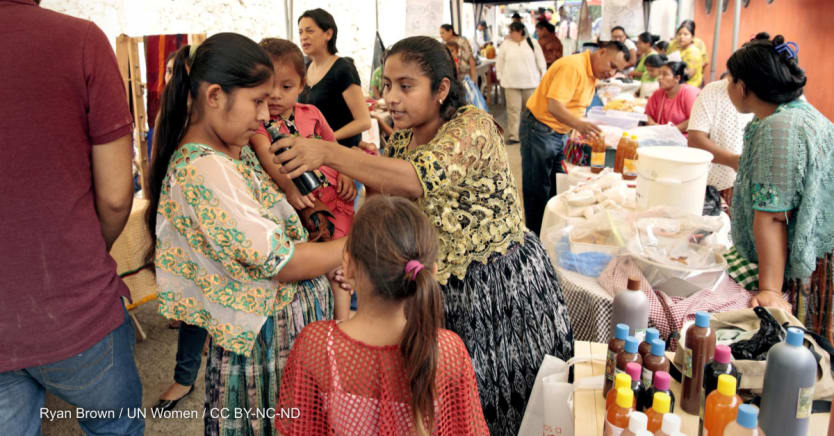Localization is key to stemming migration from Guatemala, report finds

Investing in local leadership and developing social and economic infrastructure in communities is vital to reducing irregular migration from Guatemala, according to a new report from the Migration Policy Institute and Guatemalan NGO Asociación Pop No’j.
The research, funded by the U.S. Agency for International Development and the International Organization for Migration, shows that tendency to migrate is extremely community-specific. Different municipalities in the department of Huehuetenango in Guatemala’s western highlands had unique migration patterns, researchers found.
“Investing in local actors as agents of change, engaging local leaders and organizations, as well as migrants abroad who remain connected to their home communities and also returning migrants — it makes eminent sense in development strategies to address the pressures that drive people to migrate,” said Luis Argueta, co-author of the report, during a launch event Wednesday.
“We are bolstering our ties with Indigenous communities, leaving behind this relationship of donor and recipient country to strike up a true partnership based on trust and prior consultation.”
— Anu Rajaraman, Guatemala mission director, USAID“This should balance the need for large-scale change and investments in many communities with an approach that builds capacity, accountability, and solutions from the grassroots up.”
He said understanding why people migrate is key to creating legal pathways, as well as reducing pressures to migrate by creating more opportunities at home. Although there is no single way to make that happen, “approaches that build on existing social capital leadership and networks make these efforts more productive and more likely to succeed,” Argueta said.
Irregular migration from Guatemala to the United States has grown in recent years, and it is primarily driven by poverty. An estimated 1.3 million Guatemalas were living in the U.S. in 2020, with more than half of them without legal status. This is up 44% from the number of Guatemalans who were present in the U.S. in 2013.
Remittances make up a huge portion of Guatemala’s gross domestic product: They reached $15.3 billion in 2021, which MPI said “almost certainly” exceeds the value of all exports from the country.
In November, USAID Administrator Samantha Power announced a new initiative focused on funding local organizations in Central America in a speech about the agency’s localization strategy. Centroamerica Local is a five-year, $300 million initiative to “empower local organizations in El Salvador, Guatemala, and Honduras to address the drivers of irregular migration to the United States.”
“We are bolstering our ties with Indigenous communities, leaving behind this relationship of donor and recipient country to strike up a true partnership based on trust and prior consultation in which together we can set priorities for the community focused on specific activities that are in line with shared priorities,” USAID Guatemala Mission Director Anu Rajaraman said at Wednesday’s event.
“We also listen to local actors to inform the decisions we make. We are trying to revolutionize our model so that we have a stronger and more authentic and genuine relationship and interaction with local actors.”
USAID is focusing on programs for youth, women, and Indigenous people, Rajaraman said. A lack of employment opportunities — each year 150,000 people enter the job market and compete for only 35,000 new jobs created — is a major driver of migration, she said.
The report notes that as more people migrate to the U.S. for work, they strengthen the international network that facilitates even more migration from communities of origin because people have seen others succeed.
The MPI report recommends expansion of legal pathways for migration to the U.S., Mexico, and Canada, which would allow people to travel legally for work for part of the year and be able to return to their communities.
Although communities in the western highlands were found to have “a deep sense of rootedness,” the report found, people experiencing economic shocks, violence, corruption, food insecurity, and effects of climate change can see migration as their only viable option.
“Creating legal pathways for migration would help to ensure that more of that movement be carried out in a safe, orderly, and regular manner. Policymakers should actively explore ways of expanding pathways to legal migration that would allow people to move in a more circular fashion between Guatemala and other countries,” Argueta said. “Doing so would allow people to earn money abroad but remain connected to their communities in Guatemala at the same time that they’re able to meet key labor market needs in their destination country.”
Search for articles
Most Read
- 1
- 2
- 3
- 4
- 5








